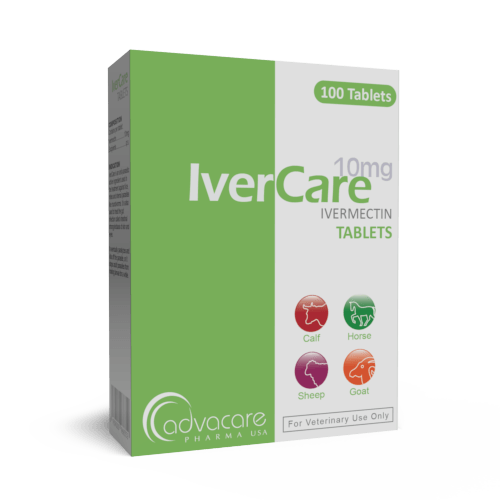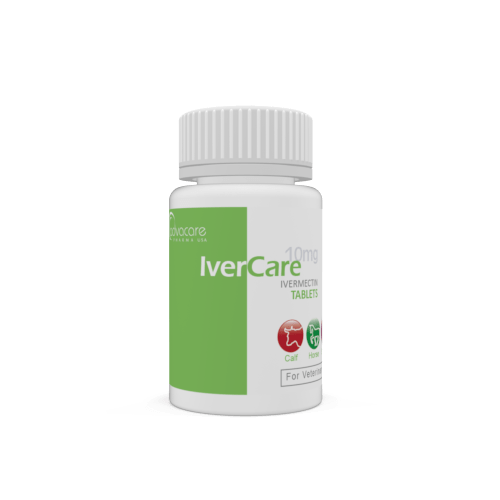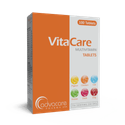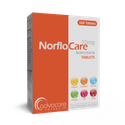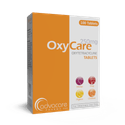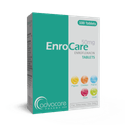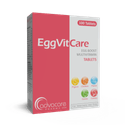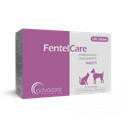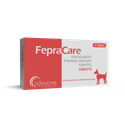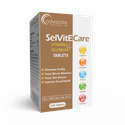- Home›
- Veterinary Pharmaceuticals›
- Veterinary Tablets›
- Ivermectin Tablets
Ivermectin Tablets
Dosage
Packaging
What is Ivermectin?
Active Ingredients: Ivermectin
Ivermectin Tablets are an anti-parasite medication used in the treatment and prevention of heartworm and intestinal worms in horses, sheep, goats, cats, and dogs. It may be used to kill the microfilaria of heartworm in infected animals. This drug is not effective against tapeworms or liver flukes.
It is known as a “wonder drug” and originates from a single microorganism isolated from Japanese soil. It is widely used in both humans and animals. Ivermectin kills a wide range of internal and external parasites in commercial livestock and companion animals, and it is also used in humans.
Ivermectin belongs to the family of medicines called anthelmintics. It is derived from avermectin, which is derived from Streptomyces avermitilis fermented products. Ivermectin works by causing neurological damage to specific parasites, leading to their paralysis and death. Currently, the FDA approves use of ivermectin for heartworm prevention, especially in dogs.
The absorption of Ivermectin depends on the animal species, route of administration, and formulation. In the blood, the drug binds to albumins and lipoproteins and distributes through the whole organism. Part of the drug accumulates, while part of it goes through biotransformation in the liver and fat. The excretion of the drug is slow, and around 2% excretes through the urine and the rest of it through bile and feces (more than 90%).
Therapeutic effects in animals depend on differences in breed, body condition, methods of quantification, and absorption.
This drug is also available in the form of injection, premix, oral solution, and pour-on solution. The choice of treatment depends on the veterinarian's decision and the current health condition of the animal.
It is important to note that Ivermectin Tablets are for veterinary purposes only.
Why choose us as your Ivermectin manufacturer?
Ivermectin Tablets, manufactured and globally supplied by AdvaCare Pharma, are one of our 250+ veterinary medicines. From supply chain coordination to product registration support, our professional teams of specialists and experts provide our veterinary distributors unparalleled support. As a trusted Ivermectin manufacturer, veterinarians and farmers alike rely on our high-quality veterinary tablets manufactured according to GMP standards.
Uses
What is Ivermectin used for?
It's used to treat or control certain parasitic infections caused by intestinal parasites (hookworms and roundworms) and capillaria.
What animals can be treated with Ivermectin Tablets?
It is recommended for horses, poultry, sheep, goats, and companion animals such as dogs and cats.
How are Ivermectin Tablets used?
This medicine has been manufactured as a tablet, which is intended to be given orally to an animal.
Why are Ivermectin Tablets used in animals?
Ivermectin is a GABA agonist and causes paralysis in susceptible arthropods and nematodes that cause serious infections in animals.
Why are Ivermectin Tablets used in companion animals?
In companion animals like dogs and cats, it is used for treating Sarcoptes scabiei, Otodectes cynotis, Cheyletiella blakei, C. yasguri, and Demodex canis.
In dogs, the preferred route for heartworm prevention is the oral route.
What are the levels of absorption of Ivermectin in animals?
In dogs and horses, the absorption is similar, and it is much faster than in ruminants and pigs. The amount of the drug after oral consumption is the highest after 3-5 hours.
Why are Ivermectin Tablets used in ruminants?
In cattle, it is mostly used for treating psoroptic mange, lice, and Hypoderma larvae.
Why are Ivermectin Tablets used in horses?
In horses, it is mostly used for treating equine filarial dermatitis from Onchocerca cervicalis.
Why are Ivermectin Tablets used in pigs?
In pigs, it is mostly used for treating Sarcoptes scabiei.
Can Ivermectin Tablets be used in humans?
Ivermectin is approved for treating certain infections by parasitic worms, head lice, and skin conditions. But FDA has not authorized or approved Ivermectin for the prevention and treatment of COVID-19 in humans.
How should Ivermectin Tablets be stored?
This medication should be stored in a dark, dry location under 30°C. Keep the tablets in the blister pack when not in use.
Dosage
How much Ivermectin should be given to dogs?
For preventing heartworm, the usual dose is 6-12mcg per kg of body weight, given once per month. For parasitic lung disease, the usual dose is 0.2mg per kg, given as a single treatment.
How much Ivermectin should be given to cats?
The minimum dose for heartworm prevention is 0.024mg per kg of body weight, given every 30-45 days.
In small animals, the dose depends on the clinical condition. For Demodex, the dosage is 0.3-0.6mg/kg, PO, every 24 hours until 2 negative skin scrapings which are 1 month apart. In dogs with gene mutations of the MDR1 gene, Ivermectin is not recommended because it can cross the blood-brain barrier. Some of the most common symptoms of Ivermectin poisoning are CNS depression, visual impairment, and ataxia. Side effects are seen if the dose is 10 times more than the normal dose.
The most commonly affected dog breeds for gene mutations are Shetland Sheepdogs, Collies, Old English Sheepdogs, Australian Collies, and other herding dogs. Side effects in these dog breeds don't necessarily occur. The veterinarian should decide if the dog should take Ivermectin. Dogs with a mutation in the gene MDR1 produce P-glycoprotein and can develop toxicosis at therapeutic dosages for Demodicosis. The first signs are mydriasis, ataxia, and tremors. Higher dosages lead to collapse, coma, and respiratory collapse.
For health issues like Sarcoptes, Otodectes, and Cheyletiella, the dosage is 0.3mg/kg, PO, during a period of 2 weeks.
How much Ivermectin should be given to horses?
In horses, Ivermectin is recommended at dosages of 0.2mg/kg, PO. The treatment is repeated as necessary as part of a parasite management program. Ivermectin in horses kills microfilariae but not adult Onchocerca cervicalis. Perform testing in the meantime because reinfestations may be noted within 2 months after treatment.
If a dose is missed, do not give two doses at once.
Refer to a veterinary doctor or pharmacist for guidelines on dosage.
Side Effects
As with all pharmaceuticals, some unwanted effects can occur from the use of Ivermectin Tablets.
Serious side effects may include:
- allergic reaction (skin rash, fever, facial swelling, or difficulty breathing)
- swelling and pruritus in horses
- shock and neurotoxicity
- neurotoxicity in mice and rats
- death or anorexia in birds
These side effects require immediate veterinary attention.
For a comprehensive list of all possible side effects of this medication, consult a veterinarian.
Precautions
Do NOT use Ivermectin Tablets for an animal that:
- has a known allergy or hypersensitivity to any of the ingredients.
- is a foal less than 4 months old or a puppy less than 6 weeks old.
- is a dairy animal within 28 days of calving.
- is producing milk for human consumption.
- is of the following species: chelonian, Indigo snake, and skink
Treatment with this drug should be administered with caution for an animal that: • is susceptible to the ABCB1-1∆ (MDR1-allele) mutation. Collie-type breeds of dogs should undergo at least 8 hours of observation after treatment. This drug causes a mutation in their multi-drug resistance gene, but not every Collie and herding dog has this mutation. You can test this gene before applying the drug.
There are known interactions between this medication and other drugs, including benzodiazepines, ketamine, spinosad, amiodarone, carvedilol, clarithromycin, cyclosporine, and ketoconazole.
This drug may cause false-negative results for animals with an occult heartworm infection.
This product is only for animal use and should be used by a veterinarian or according to instructions.
Follow the recommended dosage from the veterinarian because side effects due to higher dosages can occur. Accidental overdosing should be managed as soon as possible. Health issues should be addressed and managed properly.
Keep good hygiene practices when giving this drug.
What are the most common animals Ivermectin Tablets are used for?
Ivermectin Tablets are primarily used to treat various parasitic infestations in animals and livestock. The specific animal species and common uses of Ivermectin Tablets can include:
Cattle External and Internal Parasites
Ivermectin Tablets control and prevent external parasites like mites, lice, and ticks in cattle. Ivermectin is useful against many lungworms, grubs, lice, mites, and gastrointestinal roundworms including:
- Ostertagia ostertagi
- Haemonchus placei
- Trichostrongylus axei
- Oesophagostomum radiatum
- Nematodirus helvetianus
- N. spathiger
- Dictyocaulus viviparus
- Hypoderma bovis
- Hypoderma bovis
- Psoroptes ovis
- Sarcoptes scabiei var. Bovis
- Solenopotes capillatus
- Haematopinus eurysternus
Swine (Pig) External and Internal Parasites
Swine may suffer from external parasite infestations, and Ivermectin tablets are used for management. Ivermectin is used for treating the following:
- Ascaris suum
- Hyostrongylus rubidus
- Oesophagostomum spp.
- Strongyloides ransomi
- Metastrongylus spp.
- Sarcoptes scabiei var. suis
- Haematopinus suis
Horses External and Internal Parasites
Ivermectin Tablets for horses help control external parasites, including mites, lice, and ticks. Ivermectin is effective against:
- Large Strongyles
- Small Strongyles
- Ascarids
- Hairworms
- Bots
- Dermatitis
- Pinworms
- Lungworms
- Large-mouth Stomach Worms (adults)
Dogs and Cats External and Internal Parasites
While Ivermectin is more commonly administered orally or as a topical spot-on for dogs and cats to control internal and external parasites, Ivermectin tablets may be used in some cases. Consult with a veterinarian for guidance.
Veterinarians should decide whether the drug is appropriate for the animal’s current health condition. Although Ivermectin is useful against all these parasites, for the best results a drug combining is needed.
You might be interested in...
Why AdvaCare Pharma?
As an industry leader, we are aware of our responsibility to provide affordable and sustainable solutions to improve healthcare worldwide.
